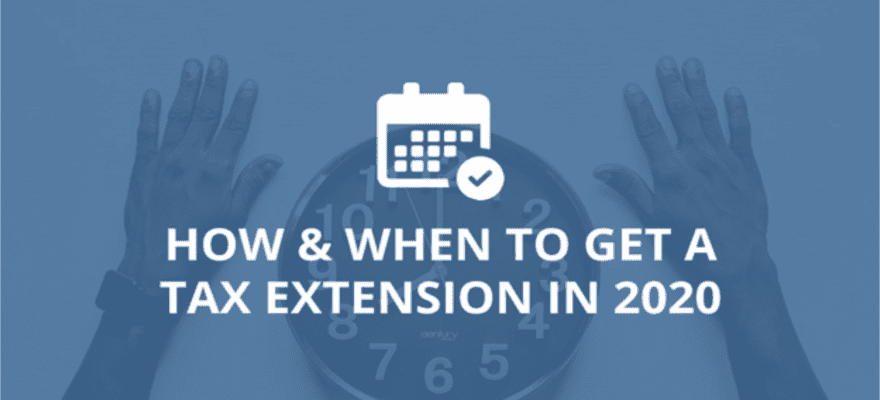For most people, the deadline for paying taxes on income earned in 2019 will be April 15, 2020. If you have a more complicated return or just need extra time collecting the documentation needed to complete and send it, you have to file an extension with the IRS by April 15 or face interest and penalties.
There is no cost to file an extension, although if you own a business, the deadline will vary depending on its entity type. The form you use to apply will also depend on whether or not you’re addressing personal or business income taxes.
Extension For Personal Income Taxes
To receive an extension on your personal income taxes and avoid potential penalties, you’ll have to complete and submit Form 4868 to the IRS before April 15, 2020. You can send it by mail or file it electronically.
Six-month extensions are granted automatically, but this concession only applies to your tax return: you still have to pay any tax owed by the April 15 deadline or risk penalties and interest for failure to pay.
Extension For Business Income Taxes
If you own a sole proprietorship, you use IRS Form 4868 to apply for an extension because business income is typically reported on your personal tax return. If you own any of the following business entities, you’ll need to use Form 7004.
- Single-member LLC
- Partnership or LLC filing as a partnership
- C corporation or S corporation.
Like personal income taxes, you’re required to estimate how much you owe for the 2019 tax year and submit the payment along with the application for an extension.
Business tax return due dates and extension deadlines for 2019 are as follows:
- Sole proprietorships, single-member LLCs, and C-corporations: Taxes due on April 15, 2020. Extension deadline moves return due date to October 15, 2020.
- Partnerships, S-Corporations, and multiple-member LLCs: Taxes due on March 15, 2020. Extension deadline moves return due date to September 16, 2020.
If you are a U.S. citizen or lawful permanent resident who is either living or running a business outside of the U.S. on the date that your return is normally due, you may be able to receive an automatic two-month extension by filing IRS Form 2350. To qualify, you must be intending to file Form 2555 or 2555-EZ and need additional time to meet the physical presence test or bona fide residence test for the foreign-earned income exclusion and/or the foreign housing deduction or exclusion.
What If You Can’t Afford To Pay Your Taxes When Due?
If you can’t afford to pay your estimated taxes on the due date, don’t wait- file your return anyway. Failure to do so will cost you a penalty of 5% of the unpaid tax, charged each month (or portion of a month) the return is late for up to five months. While you’ll still be assessed a failure to pay penalty, it’s comparatively lower at 0.5% per month of the tax not paid by the due date.
A New Jersey tax attorney can help you deal with your inability to pay by negotiating an installment agreement or offer in compromise with the IRS. In both cases, you must be current with all filing requirements, which is another reason to send your return even if you can’t pay. While you can apply for both forms of relief yourself, an experienced tax lawyer has the knowledge, experience, and understanding of the IRS regulations to get the best outcome for your case.
Speak with a New Jersey Tax Extension Attorney
Negotiating a workable installment agreement or offer in compromise requires significant knowledge of IRS guidelines and U.S. tax law. Attorney Brad Paladini at Paladini Law has a Master of Laws in Taxation and has helped a wide range of clients, from individual taxpayers to multinational corporations, manage their tax debt matters efficiently and favorably. For more information or to schedule a consultation about your IRS situation, call 201-381-4472 or complete our online form.



